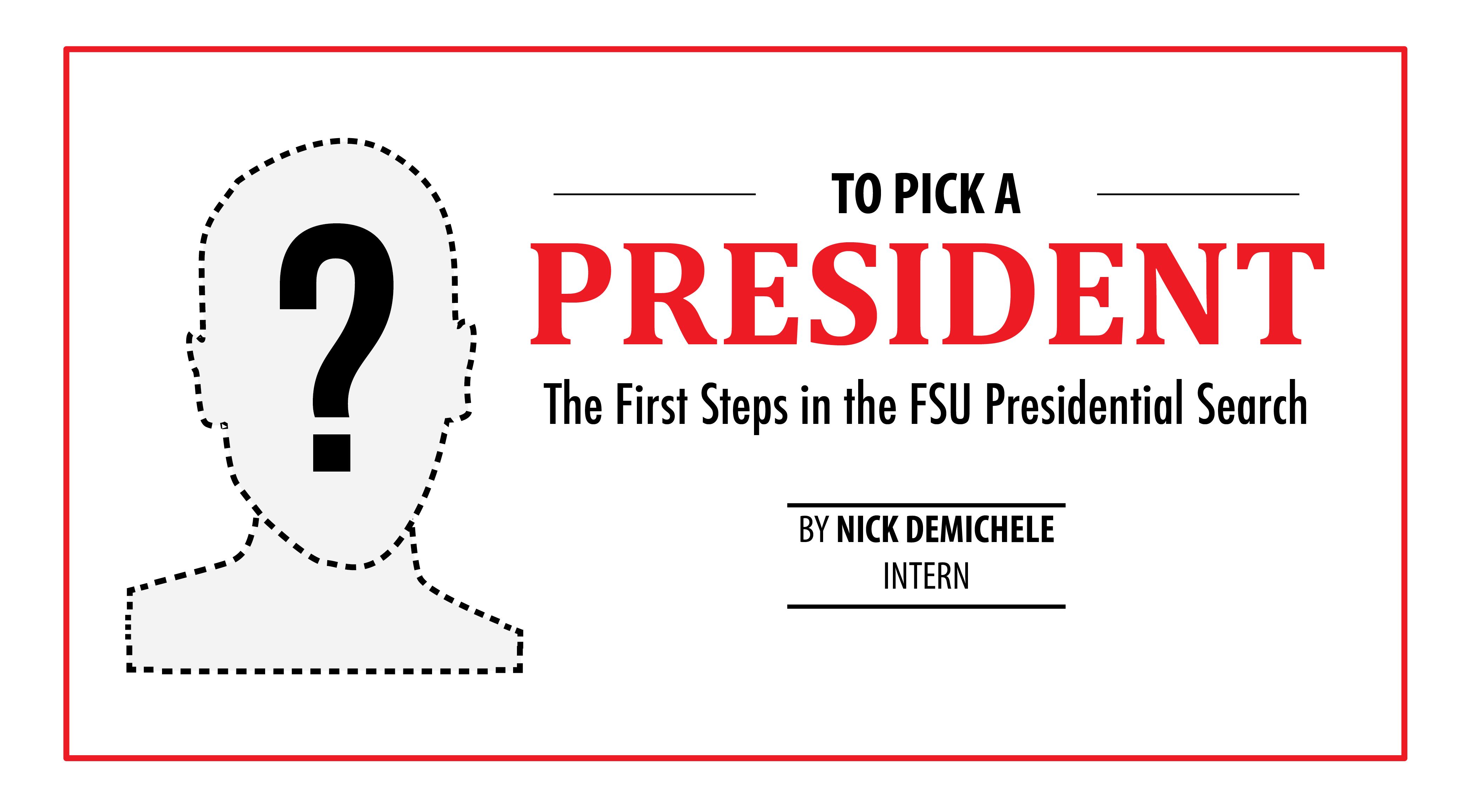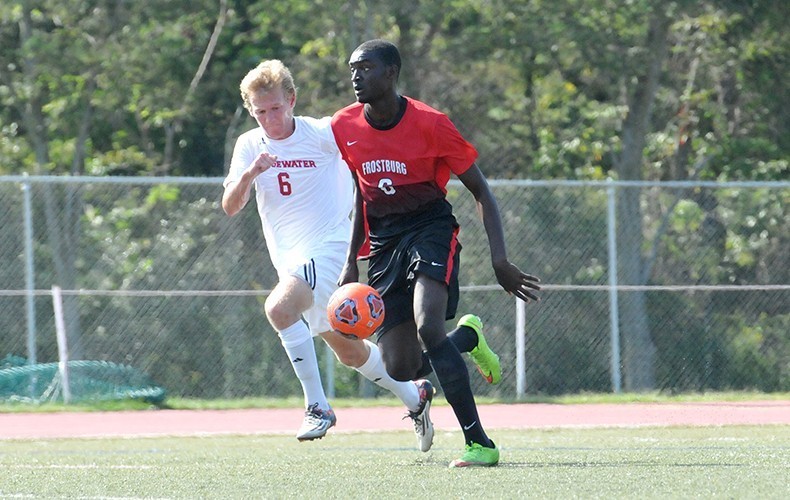To Pick a President: The First Steps in the FSU Presidential Search
The recent announcement of Dr. Jonathan Gibralter’s departure of Frostburg State University, scheduled for June 30, 2015 has led many to wonder who will take over after he leaves FSU for a new presidency at Wells College. The Bottom Line sat down with FSU Vice President for Student and Educational Services, Dr. Thomas Bowling, to help students understand the next steps and ensuing process for finding a new chief administrator at FSU.
Dr. Bowling offers a particularly useful perspective on presidential transitions, as he chaired the Presidential Search Committee that eventually resulted in the hiring of Dr. Gibralter in 2006 when Dr. Catherine Gira retired. A notable difference in the ensuing search and the 2006 transition is the fact that Dr. Gira announced her retirement in the fall semester of 2005, allowing an additional semester for planning and a national search.
The process, as described by Dr. Bowling, begins with the University System of Maryland, through the Chancellor, initiating the creation of a committee. The search committee is typically very diverse, featuring members representative of the wide array of individuals and groups impacted by the presidential selection. Members on the 2006 committee included: representatives of the FSU Foundation Board, University System of Maryland liaisons, faculty members from each FSU college, representatives from the Board of Trustees, staff members, non-exempt staff members, alumni, a student representative, and a non-member liaison from the USM Chancellor’s office.
After the creation of a committee, the first steps to replacing Dr. Gibralter will most likely be the development of a position announcement, which will include the required qualifications and details of the presidency. The announcement will be published in higher education and public education publications which are read by administrators across the country. An additional option, Dr. Bowling noted, is the possibility of hiring a search firm, which would conduct much of the leg work for the presidential search. While a firm was not hired or implemented during the 2006 transition, it is not outside of the realm of possibility for FSU to consider a search firm as an option.
Dr. Bowling cautions that the 2006 process is not necessary how the current search will operate. Various methods of candidate searches have been used by FSU and the USM system. However, the 2006 search committee began its process by narrowing 100 presidential candidates to twelve who would participate in phone interviews. These interviews narrowed the search to seven candidates, who the committee then met with in person at an airport near BWI, downstate. The rationale for meeting off-campus is to preserve the privacy of candidates, many of whom may have been sitting administrators at other colleges or universities.
Ultimately, four candidates were invited to the FSU campus, where further interviews and negations were conducted. At the end of the day, however, Dr. Bowling states that the USM Chancellor will “be the one to identify the process and time table.” Concerning said time table, it seems that there is no real urgency, as Dr. Gibralter will, in his own words, be “an actively engaged president right up until the last day that [he’s] here.” The selection process will not begin until it is initiated by the USM Chancellor William Kirwan, whose own retirement was announced in the spring of 2014 and is scheduled to be effective on June 30: the same day that Dr. Gibralter officially steps down.
Chancellor Kirwan, or his successor, will be directly responsible for appointing an interim president, who will serve as the acting president on campus while a national search is conducted for the permanent position. During the 2006 transition, current political science professor and former provost Dr. Steve Simpson served as interim president for one month after Dr. Gira left office and before Dr. Gibralter took over. The previous interim president was Harold Delaney, who served for seven months during the transition between President Herb Rinehard and President Catherine Gira. Delaney, who did not want the permanent position of president, was native to the USM system and beloved on campus during his service.
Concerns pertaining to the current hiring-freeze due to the USM budget cuts are unnecessary. Such a question arose at the Feb. 4 Faculty Senate meeting, where it was explained that the current hiring-freeze is institutional and does not apply to the University System or Board of Regents, allowing the university to hire fill the presidential vacancy.
While Dr. Gibralter departs FSU for New York to be closer to his family, Frostburg must continue with its Middle States accreditation process. Associate Provost and Administrative Co-Chair of the Middle States Committee, Dr. Randall Rhodes, offers some insight concerning the effect of the presidential search on the accreditation process.
Dr. Rhodes states that the fall semester will be a busy time for the administration, as the accreditation committee will be writing a draft of self-study while holding forums for staff, faculty, students, and the community. In the spring, a team will be visiting campus “to observe and confirm the contents of the self-study document.” When these pivotal processes are taking place, Dr. Rhodes believes that it will be “very important that the person in the role of president is able to effectively host a visiting team” and “present the institution in a knowledgeable manner.” The Middle States accreditation process will arguably be the most important agenda item during the 2015-2016 academic year. This may end up being a factor when considering candidates; in the words of Dr. Rhodes, “whoever is in the presidential position will be key in the process.”
As Dr. Gibralter finishes his time at FSU and prepares for the next phase of his career, FSU begins to look ahead to the administrative change. As June 30 creeps closer, the presidential search committee, yet to be formed, will identify candidates from across the nation and eventually select the next president of Frostburg State University. Visit us online at www.thebottomlinenews.com for updates and developments on the search as they occur.





2 Comments